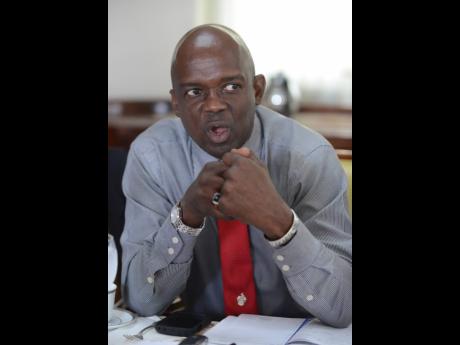Social safety net stretched as savings wiped out – expert
The scale of economic fallout from the COVID-19 pandemic has demonstrated that Jamaica’s social safety net needs to be widened and deepened, sociologist Dr Orville Taylor has asserted.
The preliminary findings of a recent study conducted by UNICEF and the Caribbean Policy Research Institute (CAPRI) on the impact of COVID-19 on children and families revealed that 80 per cent of families suffered a reduction in income.
Most families cushioned the impact with savings, but one in every two households reported only having enough income or savings to sustain them for two weeks or less.
Thirty-six per cent of households coped with the loss by accepting gifts and remittances from overseas.
Also, two-thirds of the 505 families surveyed between June and July applied for social protection programmes but not all were successful.
Taylor said the findings pointed to some of the suspicions of social scientists, but noted that the severity of the impact is even greater than he anecdotally anticipated.
“The most worrisome part of it, though, is not the fact that we have seen an increase in poverty, which is natural; it is going to happen once you reduce the capacity of a family to feed themselves ... .
“What is significant is that the majority of persons didn’t have any significant savings to thrive on,” said Taylor, head of the Department of Sociology at The University of the West Indies, Mona.
LONG-TERM SOCIAL PROTECTION NEEDED
He explained that in a country where the median age is increasing, there is need for greater emphasis at the national policy level on medium- to long-term social protection.
“That is investment in what happens to people when they are outside of the labour force, whether short term or long term.”
Taylor cited Barbados, a fellow CARICOM country, which has a national insurance scheme that incorporates unemployment protection and a severance payment fund – a system he said Jamaica could model.
It provides financial compensation to employees who either suffer partial or total loss of earnings because of total unemployment, lay-off, or short time.
“It’s a contributory scheme and it’s not difficult – it’s contributory from both sides, the employer and employee,” he said.
The National Financial Inclusion Strategy 2016-2020 reported that Jamaica has the highest proportion of formally banked adults among middle-income countries in Latin America and the Caribbean, with 78 per cent of adults owning an account at a financial institution. However, accounts are not actively used.
“Twenty-three per cent of Jamaican account holders reported not having made a deposit into or withdrawal from their account in the past year,” read a section of the strategy, which was published in March 2017.
Additionally, only 30 per cent of Jamaicans reported saving through a regulated financial institution.
Taylor argued that there is a general low propensity for saving and pension planning, among the banked and unbanked, coupled with other factors.
“Over the last couple of years, inasmuch as we have seen a reduction in unemployment, we have seen an increase in underemployment.
“People are really just not making the kind of money for them to save,” he said, adding that a significant percentage of the population is living above their means.

